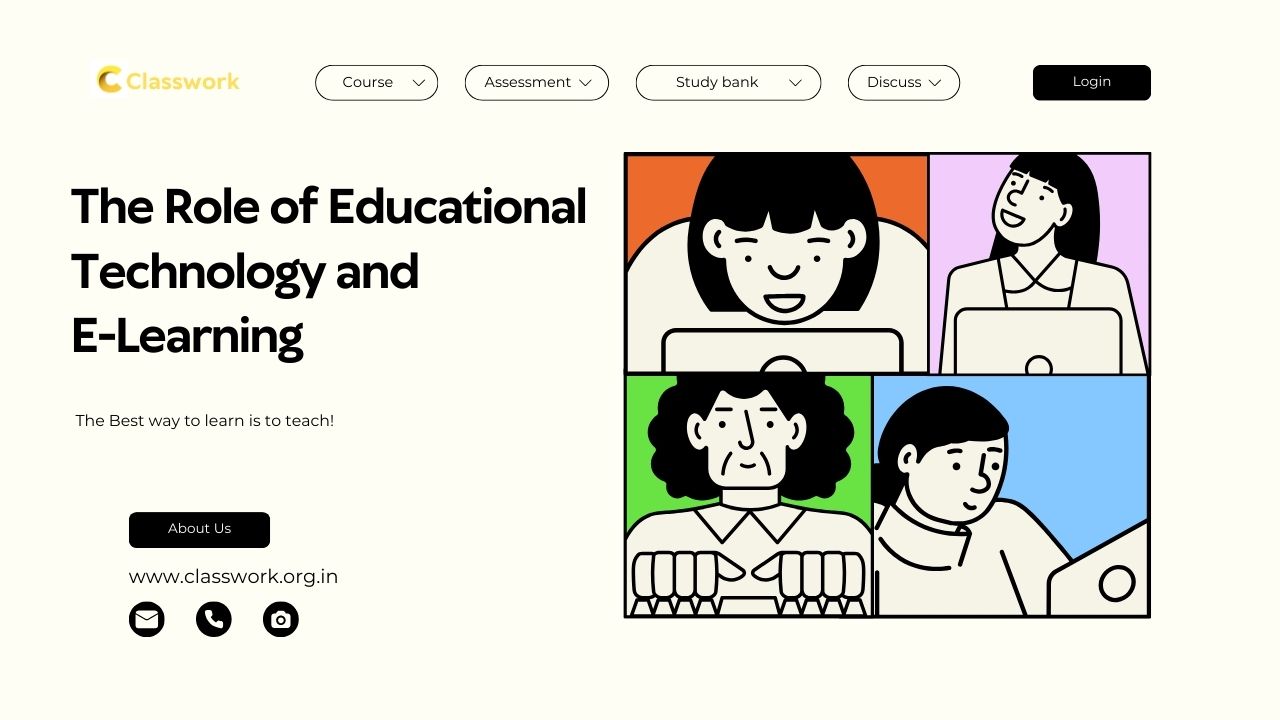- Posted on
- No Comments
The Role of Educational Technology and E-Learning
In the digital age, education is undergoing a profound shift, driven by the emergence of educational technology (EdTech) and e-learning. These advancements are fundamentally altering the traditional classroom model, offering dynamic, accessible, and interactive learning experiences. This blog post explores the transformative influence of educational technology and e-learning on modern education, highlighting their advantages, hurdles, and implications for both learners and educators.
The Emergence of Educational Technology:
Educational technology encompasses a broad array of digital tools, platforms, and resources designed to enrich teaching and learning experiences. From interactive whiteboards to mobile apps and online courses, EdTech has diversified the educational landscape, providing learners with unprecedented access to knowledge and skills.
The Benefits of Educational Technology and E-Learning:
Enhanced Accessibility: E-learning platforms break down geographical barriers, enabling learners to access educational materials from anywhere with an internet connection.
Flexible Learning: E-learning allows students to progress at their own pace, facilitating personalized learning experiences tailored to individual needs and preferences.
Increased Engagement: Interactive multimedia, gamification, and virtual simulations make learning more engaging and immersive, leading to better retention and comprehension.
Cost-Efficiency: E-learning eliminates the need for physical classrooms and printed materials, resulting in reduced costs associated with traditional education delivery.
Promotion of Lifelong Learning: Educational technology empowers learners of all ages to pursue continuous learning and skill development, fostering a culture of lifelong education.
Challenges and Considerations:
Digital Disparities: Socio-economic gaps in access to technology and internet connectivity can exacerbate the digital divide, limiting opportunities for underserved communities.
Quality Control: Ensuring the accuracy and quality of online educational content is vital for maintaining standards and credibility in e-learning environments.
Digital Literacy: Educators and learners require adequate digital literacy skills to effectively navigate e-learning platforms and critically assess online information.
Privacy and Security: Safeguarding learner data and privacy in online settings necessitates robust cybersecurity measures and compliance with data protection regulations.
Infrastructure Needs: Reliable internet access and access to suitable devices are essential for successful e-learning implementation, posing challenges in resource-constrained regions.
Navigating the Future of Education:
Teacher Development: Providing educators with professional development opportunities and training in educational technology enhances their ability to integrate digital tools into teaching practices effectively.
Adaptive Learning: Employing adaptive learning technologies enables personalized learning experiences tailored to individual learners’ abilities, preferences, and progress.
Collaboration and Networking: Participation in collaborative networks and communities of practice fosters knowledge sharing, innovation, and ongoing improvement in educational technology integration.
User-Centric Design: Prioritizing user-friendly design principles ensures that e-learning platforms are intuitive, accessible, and user-friendly for learners of all backgrounds and abilities.
Research and Assessment: Conducting thorough research and evaluation of e-learning initiatives helps identify best practices, challenges, and areas for improvement in educational technology implementation.
Conclusion:
Educational technology and e-learning hold significant promise for reshaping education, and making learning more accessible, engaging, and effective. By addressing challenges such as the digital divide and quality control, we can harness the full potential of EdTech to create a more inclusive, dynamic, and equitable education system. Let us seize the opportunities presented by educational technology and e-learning to empower learners, inspire educators, and shape the future of education for generations to come.











